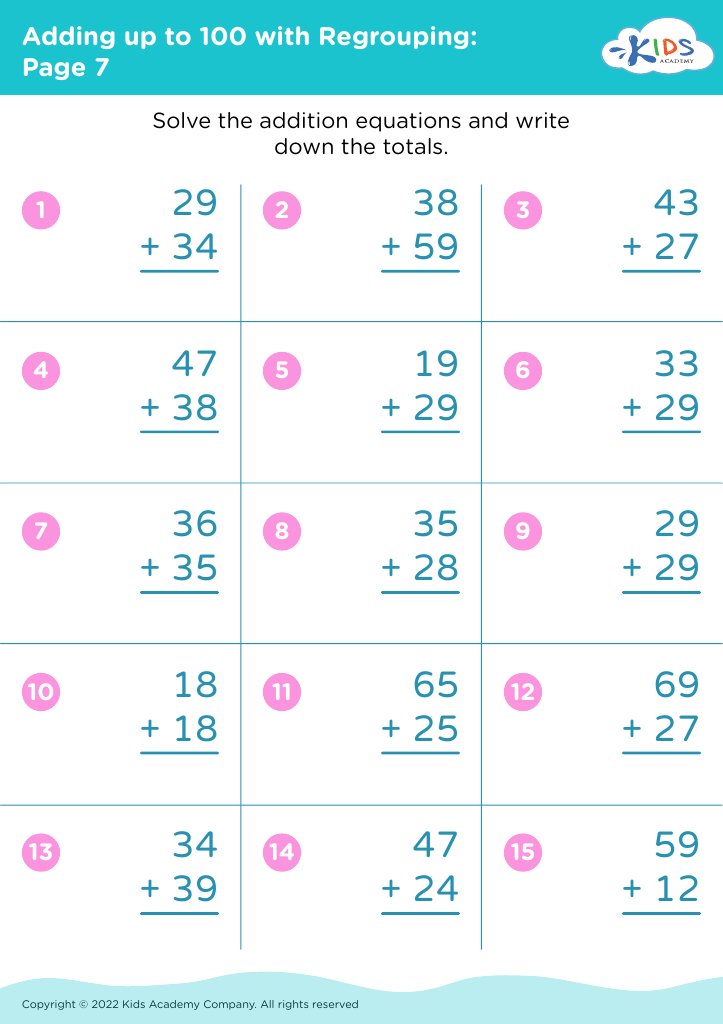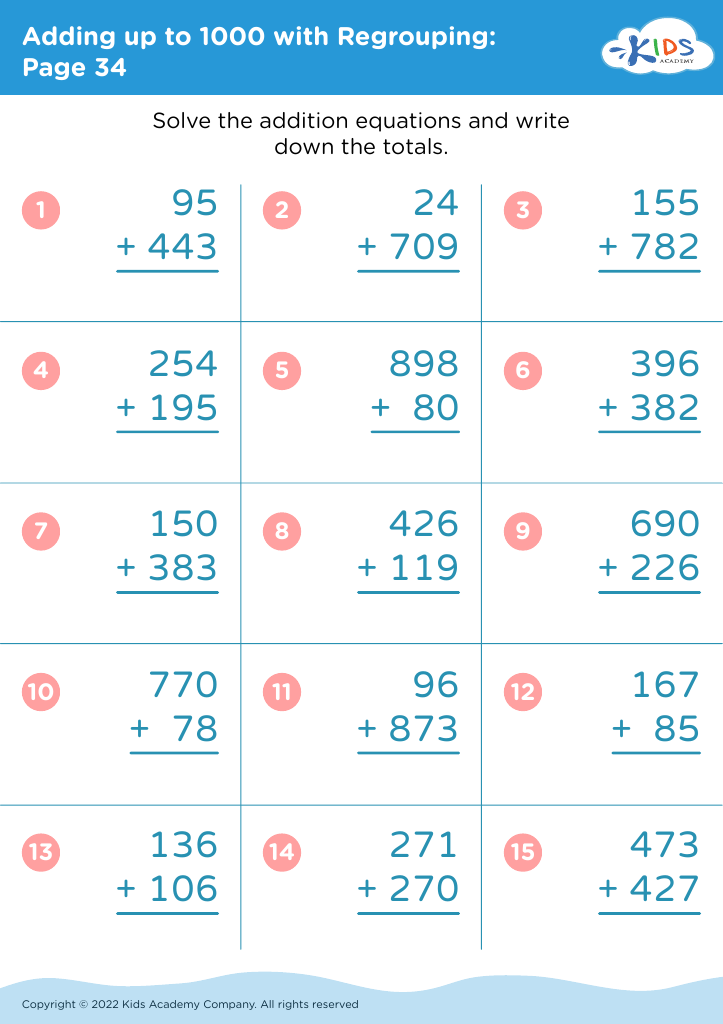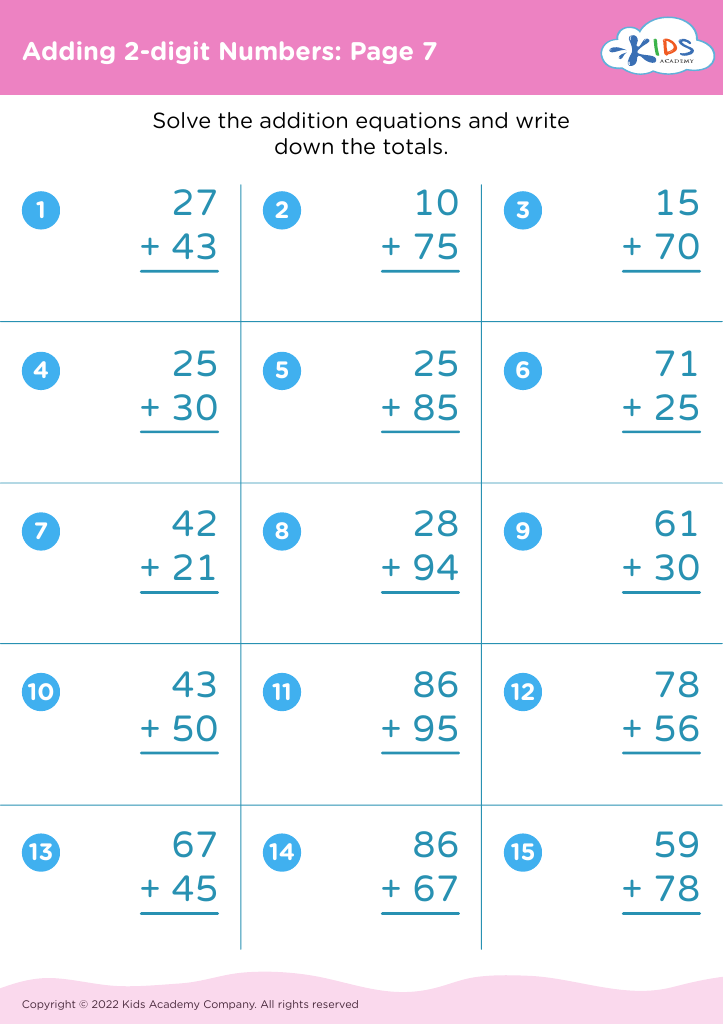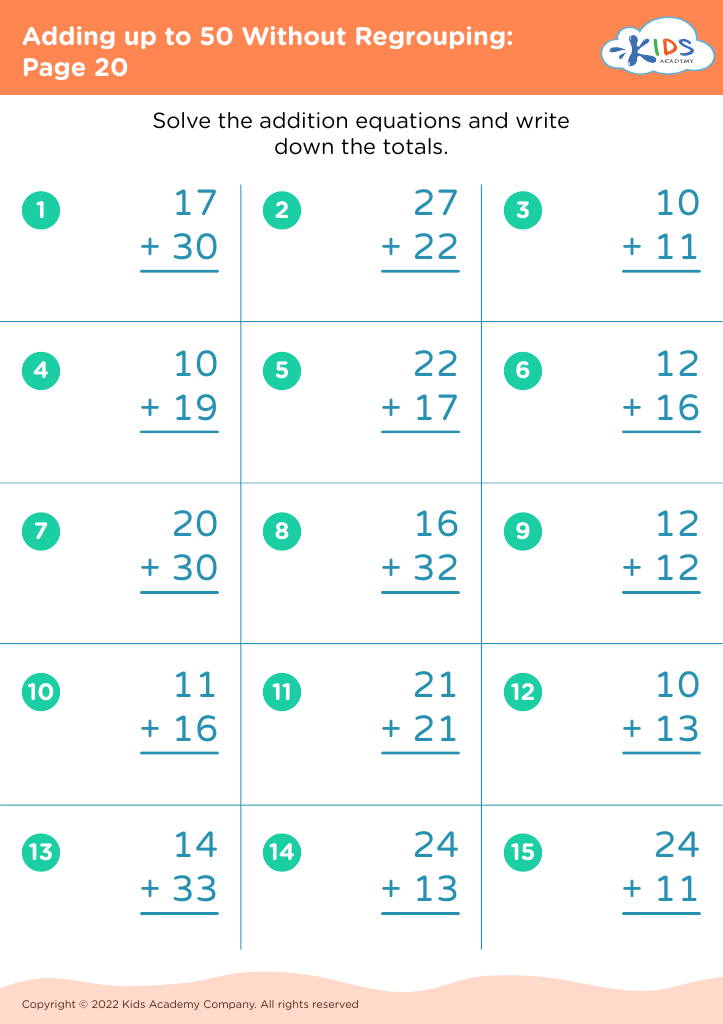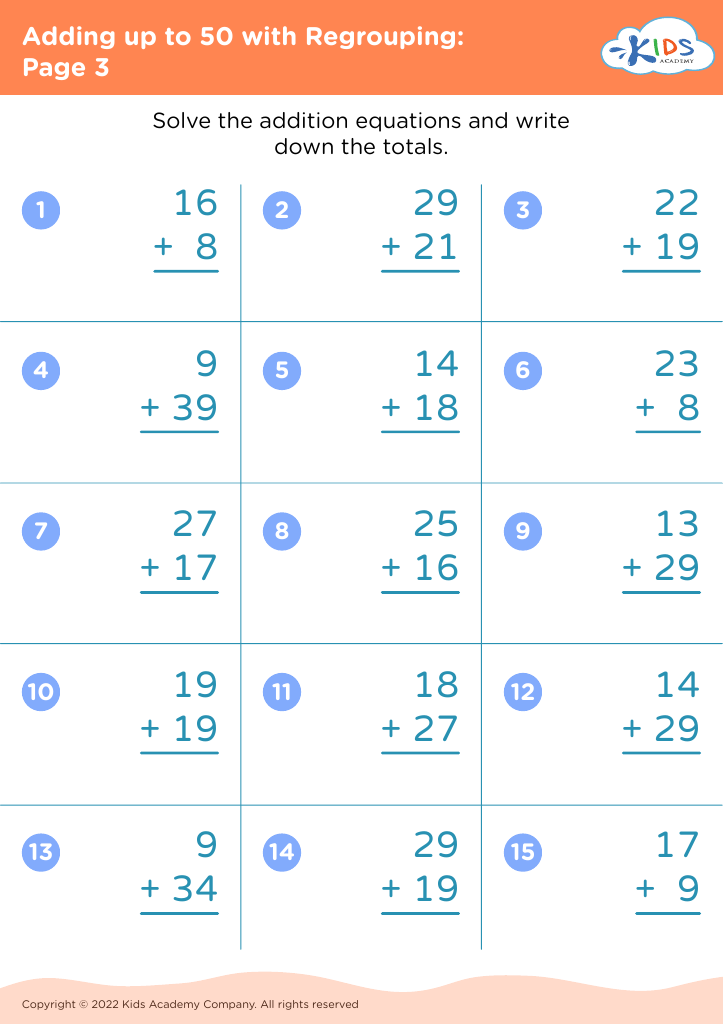Practice counting Addition Worksheets for Ages 6-8
6 filtered results
-
From - To
Enhance your child’s math skills with our Practice Counting Addition Worksheets for ages 6-8! Perfectly designed for young learners, these engaging and colorful worksheets make practicing addition fun and effective. Children will improve their counting skills as they perform simple addition tasks, boosting their confidence and laying a strong foundation for more advanced math concepts. With a variety of exercises catering to different learning styles, the worksheets ensure that every child can thrive. Ideal for use at home or in the classroom, these resources offer a seamless blend of education and enjoyment. Download now and watch your child’s math abilities flourish!
Parents and teachers play a critical role in shaping a child's mathematical foundation during their early years, especially between the ages of 6 and 8. At this stage, children are capable of grasping basic mathematical concepts, and counting addition is one such fundamental skill that lays the groundwork for more complex arithmetic and problem-solving abilities.
Focusing on counting addition for this age group offers several benefits. First, it enhances cognitive development by encouraging logical thinking and pattern recognition. As children practice counting addition, they learn to understand the relationship between numbers and build mental strategies to tackle mathematical challenges, a skill that will be valuable throughout their academic and everyday lives.
Furthermore, developing proficiency in addition fosters a sense of confidence and achievement. When children successfully add numbers, they gain a positive attitude towards math, making them more likely to engage with and enjoy the subject later on. This is crucial because a positive early math experience can reduce anxiety and prevent the development of math-related fears.
Incorporating addition in practice also aligns with educational standards for this age group. It ensures that children meet the required benchmarks, preparing them adequately for subsequent grades. Ultimately, by encouraging regular practice of counting addition, parents and teachers equip children with essential skills that promote academic success and everyday numeracy.
